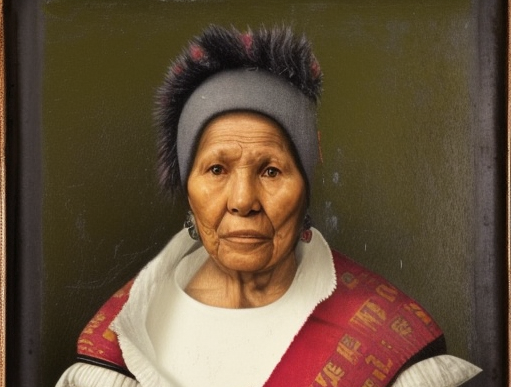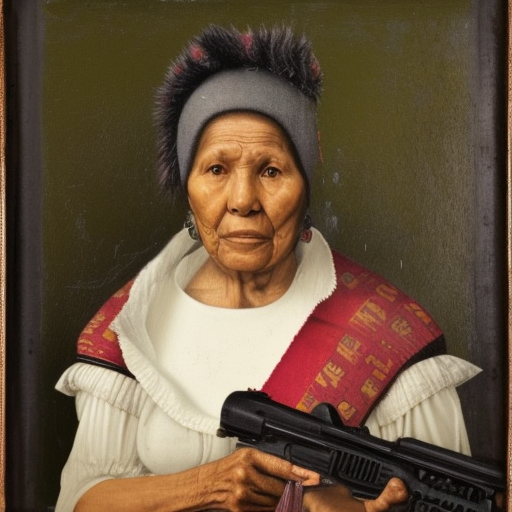Exploitation of Negative News is Ruining My Wedding

There’s a moment in a mid 90’s episode of Seinfeld where Elaine suggests to Jerry that he looks stressed. Jerry hilariously responds, “Oh, I’m stressed.”
As I rearrange my wedding dinner tables once again to adjust for the 30% (and growing) cancelation rate, I too, feel stressed. However, the cause of my stress is trying to convince my U.S. wedding guests that I am not bringing them to a war zone. You see, my wedding is happening in Peru.
I have taken approximately 10 trips to Peru over the last two decades, but until now, I have never considered myself an expert on traveling to the home of Machu Picchu. However, as someone planning a foreign wedding this month in Lima, I get an inquiry about the state of the embattled country as many as 10 times per day. Here is a synopsis; on December 7th, facing his third impeachment vote on corruption charges, then-president Pedro Castillo announced the dissolution of Congress and the installation of a new Peruvian government in what was quickly labeled as an attempted coup. By the end of that day, his allies, most notably the police and armed forces, had backed away from him, and he was arrested. Within days, civil unrest had broken out in large areas in southern Peru by ex-President Castillo’s supporters, leading to over 50 deaths in just over 2 months.
My Daily Google Search on Peru
Since mid-December, from my home in central Phoenix, Arizona, my morning starts like this; I wake up at 5:30 am and begin my most challenging tasks of the day, prolonging the unenviable assignment of searching the latest headlines on Peru. By 6 am, I explore the word ‘Peru’ under the News tab of the search engine and wait to see the inevitable bad news like a grandmother in a Jersey shore casino staring at a digital slot machine screen. Each morning I am presented with freshly minted headlines that say, “Deadly Protests in Peru,” “Protests Paralyze Tourist Hub,” and As Deadly Protests Continue, Peru’s Government Faces Crisis, to name a few.
These articles aren’t wrong; approximately 50 people have died in the conflict, including 17 people at the peak of the protests on January 10th in southern Peru. It’s the prolonging of these stories by continuing to use the word ‘deadly’ in the caption even when that descriptor is not the current tone of the protests as we enter the latter half of February. For example, the headlines Chaos, Violence, and Death: Peru’s Perilous State and Peru’s Deadly Protests: What is Happening and why are People so Angry? were used long after the last reported death. The second of these articles was posted on February 8th, nearly one full month after the peak. Still, ‘deadly’ was the adjective they chose to surely get more web traffic.
The articles above are among the many sent to me by family, friends, and other concerned guests who read them after a quick internet search to catch up on current affairs in Peru. When I receive these articles, my gut reaction is, “Don’t we have our own issues in the U.S., such as the Capital uprising we are still recovering from?” When the questions about safety in Peru inevitably come next, I hold my tongue and resist the urge to remind my guests that in the U.S., we had 69 people die in January alone in mass shootings and that there are 120 guns per 100 people in the U.S., compared to only 2 guns per 100 people in Peru. I could respond by mentioning the current U.S. protests over yet another Black man in Memphis killed by excessive police violence. In Chicago, 2.2 people are murdered each day. I realized that this didn’t prove anything. We’d all be better off with less violence, but we’d also be better off with less fear.
How Conflict News is Covered by the Media
When comparing news coverage, there’s a difference in tone in how the conflict is described. Several publications show respect for the human condition and the struggles Peruvians face through this challenging time, while still reporting the current situation. However, most recent articles about Peru emphasize the violence, number of deaths, and perceived danger involved in the protests. While those themes are relevant, they oddly omit that the most populous city, Lima, is largely unaffected by demonstrations. In the study titled Conflict Exaggeration in the News, author Kseniya I. Dmitrieva says, “Thanks to a phenomenon known as the negativity bias, humans’ underlying psychology pulls us to read and watch news that is negative.” This author argues that exaggerating the reported news “caters to the public’s fascination with rare and sensational acts of violence.” I strongly support people’s rights to protest peacefully, whether in the U.S. to protest police violence or in Peru. Collectively, we must examine how police and militaries respond to protests globally. My point is that the media should not paint a country under one broad brush and endlessly promote the negativity of a topic in the ambitious pursuit of more clicks, shares, and ad dollars.
Overall, I understand my pending wedding is trivial compared to the Peruvian people’s plight to be governed by a government they feel is just. In the end, even the timing of my glorified dinner party may be affected, and that remains a possibility until my fiance and I both say, “I do.” As my cousin who lives in Lima told me via WhatsApp this week, “Right now, everything needs to have a Plan B.”

Front Row Seat of the Conflict in Peru
Now in Peru, as I sit at a coffee shop and watch my two infants devour an ice cream cone on one of Lima’s busiest streets, I wonder how my wedding could have been different if not for the media. On the shuttle ride to our Lima rental home for the week, my driver told me that in February, they typically operate 10 buses continuously each day; now, they are only running two due to the heavy decline in tourism to Peru. He, a father of two, is being forced to take an unpaid vacation beginning this weekend. I think back to a recent discussion I had about the country with several of those who will attend. I lamented to the group that we have had approximately 30% of our guests cancel and that there would likely be more. To that, one of my guests proudly claimed that he had not read one article about Peru. “Good, I thought, at least I’ll have one person at my wedding.”
